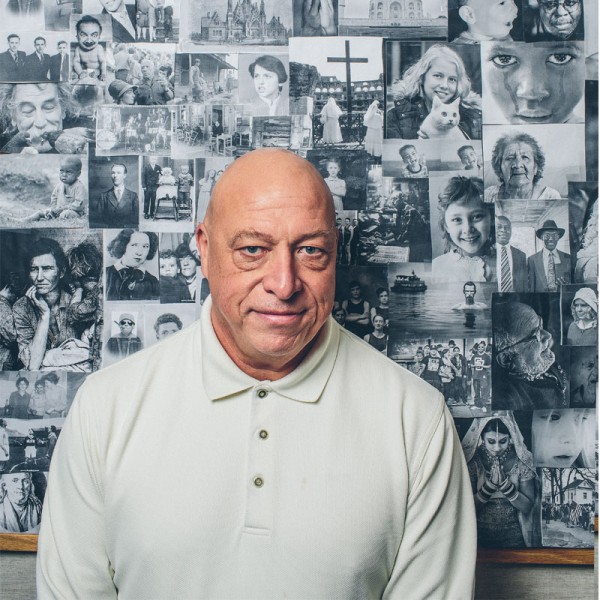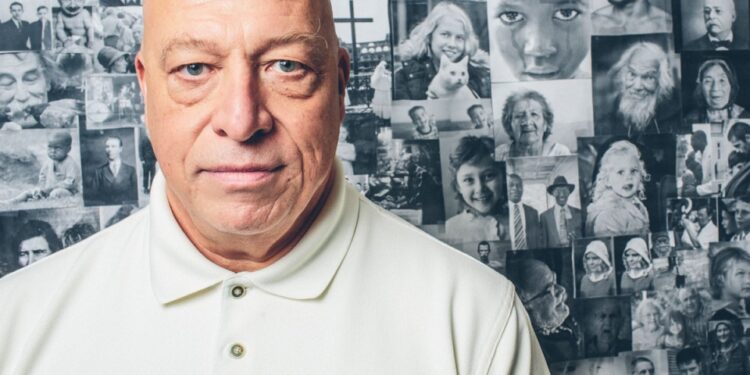At 63, John Erickson looks like he could still put a sleeper hold on a steer. If possessing the intimidating presence of a Midwestern hit man is a hurdle to getting acquainted with someone, it is a blissfully low one.
“I admit it is a barrier, looking like a bouncer or a cleaner, that kind of thing,” Erickson says, musing on the subject of first impressions at Caffeine Dreams where he’s a fixture, even lending his mug to a Joshua Foo photo exhibit on faces.
Tough though he may be, Erickson is also a healer, a licensed therapist trained in suicidology. He “tends the garden of the mind” at Bergan as well as doing risk assessments in “jail settings.”
In this stressful, post-9/11 world, our understanding of brain function has increased dramatically.
Much of that time Erickson has been on the front lines. One might expect a suicidologist to be morbid, but nothing is further from the truth.
“We have much greater understanding of brain function today and it’s well established that when our system gets stressed, we can reach a tipping point,” says Erickson. “And we live in very stressful times.”
From contentious politics to the carnival of souls that is Facebook, stress is omnipresent.
“Studies have been done of children growing up in poverty, where their neurological systems show signs of post-traumatic stress disorder,” says Erickson, whose wife is a fifth grade teacher.
“She teaches in a school with a lot of poverty, and it does have an effect. It takes a compassionate response based on understanding and respect. Walk a mile in someone’s shoes before you judge or criticize them.”
Police and medics are called for mental illness related welfare checks that can end tragically, but Erickson believes mental illness first aid training has been paying off in Omaha.
“Credit to the Omaha Police Department for handling things. A lot of times, they have no idea what they’re going to walk into or what the response is going to be,” Erickson says. “I’ve just recently had police respond to a patient of mine who was distressed and they handled it exceptionally well. There are more and more police officers understanding mental illness.”
Training mentally ill patients to call attention to their psychiatric conditions during crisis helps forestall tragedy, says Erickson, who is not just an advocate for others, but himself as well.
“There are different levels of mental illness. It is very common. I have attention deficit disorder. It’s a lifelong condition,” Erickson says. “We all have a tipping point…and as the mind goes, so goes the body. Some have neurological systems that are over-reactive or under-reactive to stress. Anytime we feel threatened—physically, socially, intellectually, or emotionally. There is a segment of the population with mental illness that just has a very difficult time handling stress.”
Helping others can cause stress as well. John recently came off medical leave for compassion fatigue. Insurance issues left him feeling “like he was driving down a winding road with faulty brakes.” Knowing that feeling personally is one reason John has trained in suicidology.
“Suicide is the heart attack of mental illness,” John says about why he keeps going. “I’ve had an opportunity to have patients who are more than patients; they’re friends. I care about them. It doesn’t always work out, but it does have an effect.”














